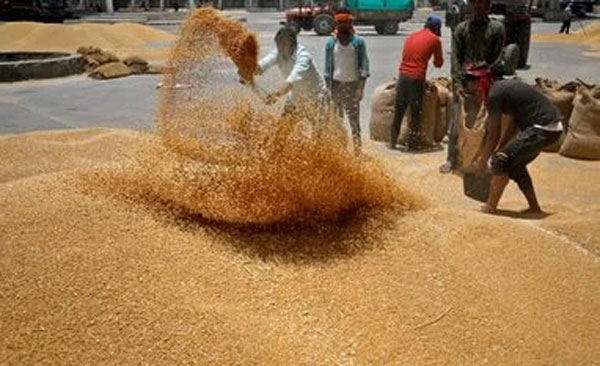Daijiworld Media Network - New Delhi
New Delhi, Aug 26: In a bid to ensure price stability ahead of the upcoming festive season, the Central Government has tightened wheat stock limits for traders and processors across all States and Union Territories. The move aims to curb hoarding and prevent artificial scarcity in the market.
According to the Ministry of Consumer Affairs, Food and Public Distribution, the stock limit for wholesalers has been reduced from 3,000 metric tonnes (MT) to 2,000 MT. For retailers, the limit has been lowered from 10 MT to 8 MT per outlet. Wheat processors will now be allowed to stock only 60% of their monthly installed capacity (MIC) multiplied by the remaining months of the current financial year—down from the earlier 70%.
These revised limits will remain in force until March 31, 2026, and are part of the government’s broader strategy to protect food security and deter speculative practices in the grain market.

All stockholding entities must declare or update their wheat stock every Friday on the official wheat stock portal (https://foodstock.dfpd.gov.in). Any failure to comply with the registration or limit guidelines could lead to action under Sections 6 and 7 of the Essential Commodities Act, 1955.
Entities currently holding wheat stocks above the newly prescribed limits must reduce their inventory within 15 days of the official notification. Both Central and State authorities will be actively monitoring compliance to ensure smooth supply and price control.
The government reassured that wheat availability in the country remains robust. Total wheat production for the 2024–25 crop year stands at 1175.07 lakh metric tonnes (LMT), and procurement for the 2025–26 Rabi marketing season has reached 300.35 LMT through the Food Corporation of India (FCI) and state agencies—enough to meet PDS and other public needs.
The Department of Food and Public Distribution affirmed that it continues to keep a close watch on wheat stocks and market trends to prevent volatility and safeguard consumer interests.